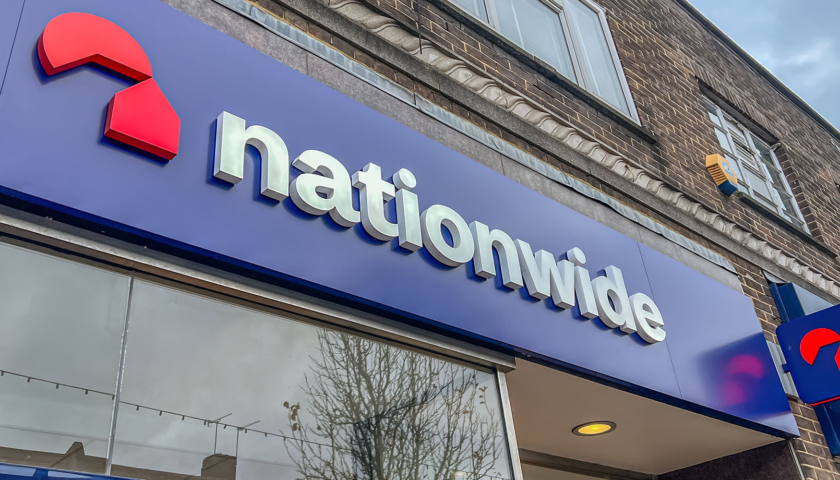Mortgage rates have seen their biggest drop since 2022 following a January pricing war. But rate cuts are now starting to slow. What’s going on with mortgage rates?
The mortgage price war appears to have slowed so borrowers need to act fast to find the best deal if they want to remortgage or get a home loan to buy a property.
Mortgage lenders started cutting rates at the tail-end of 2023 amid hopes that the Bank of England would cut the base rate early in the New Year amid slowing inflation.
But financial markets are now expecting an interest rate cut towards the middle rather than start of this year and economic uncertainty has pushed up swap rates, prompting lenders to starting increasing their pricing again.
Even the best deals aren’t sticking around for long as borrowers rush to snap up lower rates.
The average shelf-life of a mortgage product has plummeted to a six-month low of 15 days as of March 2024, according to Moneyfacts.
Two-year fixed mortgage rates had hit their lowest level since 2022 at the start of 2024.
Nationwide, HSBC, Santander and NatWest are among lenders who have trimmed rates this year.
The average two-year fixed rate is at 5.80%, according to Moneyfacts, while a typical five-year deal is priced at 5.38%.
The improving situation with inflation had played a part in the rate cuts seen over the last few months. As inflation has dropped, expectations have grown for a base rate cut this year, and that has fed into cheaper funding costs for mortgage lenders.
However, rate cuts have now started to slow – and in some cases, rise.
Inflation unexpectedly rose in December, from 3.9% to 4% and remained at the same level in January but fell to a new two-year low of 3.4% in February.
This has prompted speculation about when the Bank of England will be able to start reducing the base rate and is having an impact on funding costs for mortgage lenders.
The Bank of England (BoE) froze interest rates for the fifth consecutive meeting in March and analysts are a bit more doubtful about when cuts will come, which is putting up swap rates, which determine mortgage costs.
The BoE said it needed to be sure that inflation has calmed down before cutting rates, while it is also monitoring wage growth levels ahead of a decision.
“While markets had been pricing in a bank rate reduction at the start of the year, unfortunately in recent weeks that continued to look unlikely feeding into an increase in swaps,” says Nicholas Mendes, mortgage technical manager at mortgage broker John Charcol.
“As a result, lenders have been delaying any rate increases for as long as possible or at least until they have utilised their allocation of funds.”
While mortgage rates have dropped noticeably from some of the highs of last year, they are still more costly than has been the norm for the last decade.
Borrowers who are still on cheap fixed-rate mortgages could get a big shock when they remortgage: data from the Financial Conduct Authority shows that nearly 1.4 million mortgage deals are set to end in 2024, forcing homeowners to pay £200 more on average in monthly payments.
Mortgage lenders cut rates
A host of mortgage lenders have announced rate cuts, due to predictions that the Bank of England base rate could start to fall in the first half of this year.
Nationwide Building Society ‒ the largest mutual in the UK ‒ announced substantial cuts to its interest rates of up to 0.81 percentage points towards the end of January, with the cheapest rate at 3.84%, its lowest level in eight months.
That deal has since been pulled though and the lowest mortgage rate on the market is currently a five-year fix from AIB (NI) at 3.99% or 4.13% from Danske Bank but you will need a hefty 40% deposit.
Halifax, HSBC and Santander have also increased rates in recent weeks after large reductions during January.
There are now a host of lenders offering rates below 5%, an important development given that back in November no mortgage lender offered fixed rates below this level.
So, does this mean mortgage rates are firmly on a downward trend – and what sort of rates could we see in the future?
Will mortgage rates come down further?
Recent cuts are good news for mortgage holders, but “this isn’t going to usher in an era of super-low rates”, says Sarah Coles, head of personal finance at the investment platform .
“However, it will be enough of a shift to make a material difference to remortgagers who were dreading the hunt to find a new deal – and some buyers who had been priced out of the market.”
Mortgage brokers highlight that a difference is emerging between purchase and remortgage deals, with the latter becoming more expensive.
“After months of their lending books being filled with remortgage and product transfer business, the major lenders want to tilt the balance back towards purchase clients, especially as the housing market is on a bounce-back,” said Stephen Perkins, managing director at Yellow Brick Mortgages.
“This could help support house prices and overall property market transactions.”
Some lenders are offering more innovative products aimed at first-time buyers.
For example, Yorkshire Building Society unveiled a low deposit 5k mortgage in March 2024.
The mortgage rate is just one aspect of a deal though.
Borrowers need to watch out for extra mortgage costs as many deals have high fees attached that could offset any savings compared with other deals with higher rates but lower charges.
Mortgage product fees have increased to £1,141 on average as of early March, up £46 compared with this time last year.
What about variable mortgage rates?
About 2.2 million homeowners are on variable-rate mortgages, which are tied to the BoE’s base rate.
The average standard variable rate (SVR) is an eye-watering 8.18%.
Those who have been on a variable rate waiting for a good time to fix might be wise to do it now, says Coles. “You will need to be comfortable with watching fixed rates [potentially] fall further this year, but you will have the certainty of a fix at a lower rate than we’ve seen for months.”
What about buy-to-let rates?
Buy-to-let mortgage rates are slightly more expensive than deals for homeowners. Last summer, they were pushing 7%.
They have thankfully come down from these sky-high levels.
As of the end of February, average buy-to-let rates have dropped to their lowest level since November 2022, according to Moneyfacts.
An average fixed rate buy-to-let mortgage across all LTVs is now priced at 5.52% compared with 6.88% in August 2023, the comparison website said.
However, rates remain high relative to previous years. High buy-to-let mortgage rates are perhaps the final nail in the coffin for landlords, leading many to sell their properties. The number of homes in the UK available to rent is currently at a 14-year low.
Mortgage support available
Despite mortgage rates starting to fall, they remain very high, and much higher than when many people would have last remortgaged. Millions of homeowners remortgaged last year or will have to do so this year – many of whom will be coming off rates as low as 1% or 2%.
If you’re struggling to make your mortgage repayments, the good news is that lenders representing 90% of the mortgage market have signed up to the government’s mortgage charter. They include the big banks like Halifax, HSBC and Santander and building societies like Nationwide, Leeds and Skipton.
The charter is a series of support measures intended to help those in difficulty. Borrowers will be able to make a temporary change to their mortgage for six months to give them some breathing space, such as switching to interest-only payments or extending their mortgage term to reduce their monthly payments. Customers have the option to revert to their original term within six months by contacting their lender.
Meanwhile, there is a 12-month delay before repossession proceedings can start against those who have missed payments.
Regardless of whether your lender has signed up to the charter, all lenders also have a range of measures in place for customers experiencing difficulties.
Should I overpay my mortgage?
If you’ve got some spare cash, overpaying your mortgage can be a good way to protect yourself before your mortgage deal expires and you have to remortgage at a much higher rate.
Contact one of our highly experienced mortgage advisors today on 0121 500 6316 to discuss your mortgage needs.



